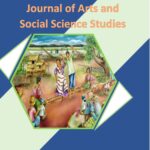Ethical standards for publication exist to ensure reliable & high-quality scientific publications, public trust in scientific findings, and that people (especially researchers) receive credit for their ideas. The ethical issues presented here are those that are the most commonly and widely accepted in research in academia and the research community today. The ethical issues in research may be violated in different ways:
Unethical experimentation
Research with animals
Animals play a significant role in research. Researchers use them in various ways, such as for testing new pharmaceuticals, as teaching tools for medical students, and as experimental subjects for new surgical procedures. Research with animals is necessary and vital to biomedical research because animal research is frequently a necessary first step towards research involving new medical treatments and pharmaceuticals intended for human use. In order to prevent the mistreatment of animals the United States government first passed the Animal Welfare Act in 1966 (Animal Welfare Act and Regulations).
Research with human subjects
Respect for Persons – Informed Consent: Informed consent exists to ensure that all research involving human subjects allows for voluntary participation by subjects who understand what participation entails. Informed consent means that people approached and asked to participate in a research study must: a) know what they are getting involved with before they commit; b) not be coerced or manipulated in any way to participate; and, c) must consent to participate in the project as a subject.
Respect for Persons – Privacy and confidentiality: Privacy and confidentiality are very important components for research involving human subjects. People have a right to protect themselves, and information gathered during research participation could harm a person by violating their right to keep information about themselves private. The information gathered from people in biomedical studies has a unique potential to be particularly embarrassing, harmful, or damaging.
Guest authorship /Co-authorship
All individuals who made significant scientific contributions to the research work should be given the opportunity to be included as coauthors. Other persons who contributed to the study should be acknowledged but need not be identified as coauthors. Every coauthor should be aware of the content of an article to be submitted, agree to its submission and share appropriate responsibility for the work. Any individual unable to take appropriate responsibility for the article should not be included as a coauthor.
Authorship disputes
Authorship is the process of deciding whose names belong on a research paper. In many cases, research evolves from collaboration and assistance between experts and colleagues. Some of this assistance will require acknowledgement and some will require joint authorship. Each person listed as an author on an article should have significantly contributed to both the research and writing. In addition, all listed authors must be prepared to accept full responsibility for the content of the research article.
Conflict of interest
Any potential conflicts of interest (e.g: employment, stock ownership, patent licenses etc.) should be reported to the editorial office. These include personal, academic, political, financial and commercial gains.
Research fraud
Research fraud is publishing data or conclusions that were not generated by experiments or observations, but by invention or data manipulation. There are two kinds in research and scientific publishing: Fabrication: Making up research data and results and recording or reporting them.
Falsification: Manipulating research materials, images, data, equipment or processes. Falsification includes changing or omitting data or results in such a way that the research is not accurately represented. A person might falsify data to make it fit with the desired end result of a study.
Data management
The three issues for data management (ethical and truthful data collection, responsibility of collected data and data sharing) can be addressed by researchers before and during the establishment of a new research project. Ethical data collection refers to collecting data in a way that does not harm or injure someone. Harm and injury could range from outright physical injury to harmful disclosure of unprotected confidential health information. In comparison, truthful data collection refers to data that, once collected, are not manipulated or altered in any way that might impact or falsely influence results. Assigning and ensuring responsibility for collecting and maintaining data is one of the most important ethical considerations when conducting a research project.
Duplicate submission and publication
Duplicate or multiple submissions is the most common ethics violation encountered. It is unethical for authors to publish articles describing essentially the same research result in more than one journal. It is also unacceptable for authors to submit the same manuscript concurrently to more than one journal.
Duplicate publication or self-plagiarism is the publication of an article that is identical or overlaps substantially with an article already published elsewhere, with or without acknowledgment.
Redundant publication
Redundant or repetitive publication is the publication of copyrighted material with additional new or unpublished data.
Peer review
The two most important ethical concepts in the peer review process are confidentiality and protection of intellectual property. Reviewers should not know the author (or authors) they are reviewing and the author (or authors) should not be told the names of the reviewers. Only by maintaining strict confidentiality guidelines can the peer review process be truly open and beneficial. Likewise, no person involved in the peer review process- either the editor, reviewers, or other journal staff can
Plagiarism and self-plagiarism
Authors should not use without attribution, text, concepts, data, figures, or tables from another work published either by others or by themselves. Plagiarism of others’ works and self-plagiarism are serious breaches of ethics and are not tolerated. If a direct quotation is appropriate, the original source should be properly cited. Figures, tables, and other images reproduced from another source normally require the publisher’s permission.
It is noticed that SARPO follows strictly the above ethical issues. In the event that there are documented violations of any of the above mentioned policies (except peer review) of SARPO, regardless of whether or not the violations occurred in a journal published by SARPO, the following rules will be applied:
- Immediate rejection of the infringing manuscript.
- Immediate rejection of every other manuscript submitted to any journal published by SARPO by any of the authors of the infringing manuscript.
- Prohibition against all of the authors for any new submissions to SARPO, either individually or in combination with other authors of the infringing manuscript, as well as in combination with any other authors. This prohibition will be imposed for a minimum of 2 years.
- Prohibition against all of the authors if any from serving on the Editorial Board of SARPO.
- In cases where the violations of the above policies are found to be particularly offensive/flagrant, the publisher reserves the right to impose additional restrictions beyond those described above.











